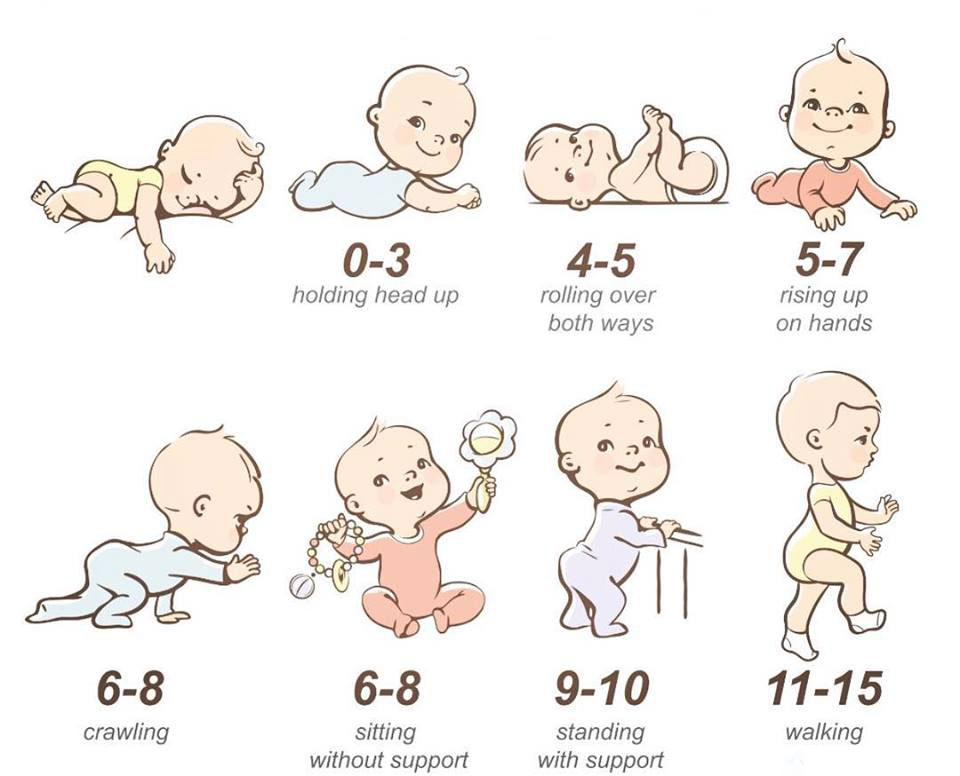 Source: bing.com
Source: bing.comWatching your baby grow and develop is one of the most exciting experiences for any parent. From their first steps to their first words, every milestone is a cause for celebration. As babies grow, they develop their motor skills, which are essential for them to interact with their environment and explore the world around them. In this article, we’ll take a closer look at the different stages of baby motor development and what you can expect your little one to achieve.
Table of Contents
Stage One: 0-2 Months
In the first two months of life, your baby will spend most of their time sleeping and eating. However, during their waking moments, they will begin to develop their motor skills. At this stage, their movements are reflexive and involuntary. They will start to kick their legs and move their arms around, but they won’t have much control over their movements yet. You can encourage your baby’s motor development by providing plenty of opportunities for them to move and stretch. Tummy time is a great way to help your baby strengthen their neck muscles and prepare for future milestones.
Stage Two: 3-6 Months
Between three and six months, your baby’s motor development will start to become more purposeful. They will be able to reach for and grasp objects, roll over, and sit up with support. During this stage, your baby’s hand-eye coordination will also improve, and they will begin to explore objects by putting them in their mouth. This is a crucial stage for developing their fine motor skills, which are essential for future tasks like writing and using utensils.
Stage Three: 7-12 Months
Between seven and twelve months, your baby’s motor development will really take off. They will start to crawl, pull themselves up, and cruise around furniture. They will also be able to pick up small objects using their thumb and forefinger, which is known as the pincer grasp. Around nine months, your baby will likely start to develop their own way of moving around, whether that’s crawling on hands and knees or scooting on their bottom. This is a great time to baby-proof your home and provide plenty of safe spaces for your little one to explore.
Stage Four: 12-18 Months
Between twelve and eighteen months, your baby’s motor development will continue at a rapid pace. They will start to walk independently, climb stairs, and run. They will also be able to stack blocks and make simple towers. This is a time when your baby’s gross motor skills will really take off, and they will be able to move around with ease. You can encourage this development by providing plenty of opportunities for your baby to practice their newfound skills, such as setting up obstacle courses or playing games that involve running and jumping.
Stage Five: 18-24 Months
Between eighteen and twenty-four months, your baby’s motor development will become more refined. They will be able to jump with both feet, throw a ball, and use utensils to eat. They will also start to copy simple shapes and lines, which is the beginning of their drawing skills. During this stage, your baby’s fine motor skills will continue to develop, and they will start to use their fingers more dexterously to manipulate objects. This is a great time to introduce your little one to art materials like crayons and playdough, which will help them develop their creativity and fine motor skills.
Conclusion
Watching your baby grow and develop is an incredible experience. By understanding the different stages of baby motor development, you can help support your little one’s growth and development. Remember to provide plenty of opportunities for movement and exploration, and celebrate every milestone along the way. With your love and support, your baby will continue to thrive and reach new heights.
Frequently Asked Questions
Q: When should my baby start crawling?
A: Most babies start crawling between seven and ten months, but some may start earlier or later. It’s important to remember that every baby develops at their own pace, so don’t worry if your little one takes a little longer to start crawling.
Q: How can I encourage my baby’s motor development?
A: Providing plenty of opportunities for movement and exploration is key. Tummy time, playing with toys, and setting up safe spaces for your little one to explore are all great ways to encourage motor development. You can also talk to your pediatrician about specific exercises or activities that may be helpful for your baby.
Q: What should I do if I’m concerned about my baby’s motor development?
A: If you’re concerned about your baby’s motor development, talk to your pediatrician. They can help assess your baby’s development and provide guidance on any specific exercises or interventions that may be needed.
Q: Is it normal for my baby to skip certain milestones?
A: Every baby develops at their own pace, so it’s not uncommon for babies to skip certain milestones or achieve them in a different order. However, if you’re concerned about your baby’s development, talk to your pediatrician. They can help assess your baby and provide guidance on any necessary interventions.
Q: What are some fun activities I can do with my baby to support their motor development?
A: There are lots of fun activities you can do with your baby to support their motor development. Some great options include tummy time, playing with toys that encourage reaching and grasping, setting up obstacle courses, and playing games that involve movement and coordination.
